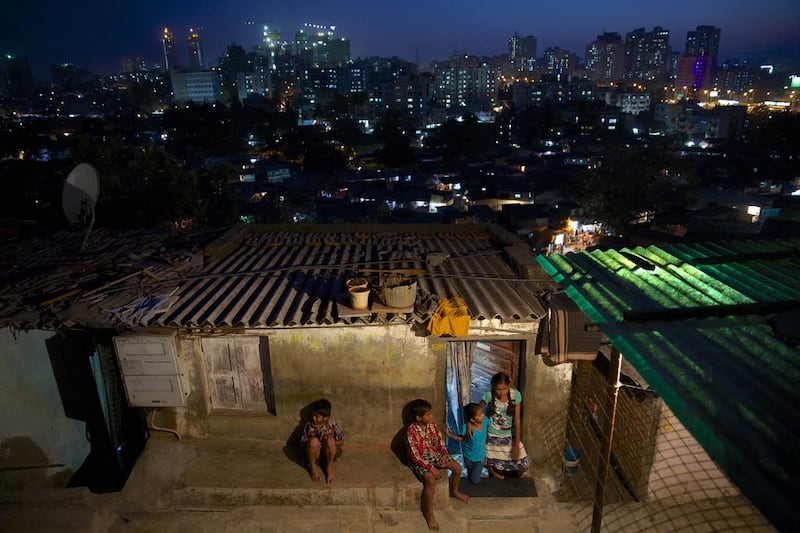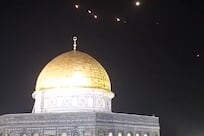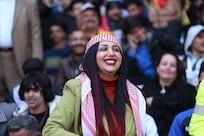We've been trained to think of dystopian fiction as prophecy, as a warning of dark times to come. This is an impression that is encouraged by the genre's links to science fiction and its explorations of how technology interacts with totalitarianism – whether it's the Stalinist panopticon of George Orwell's 1984, or the post-apocalyptic technocracy of Yevgeny Zamyatin's We.
Implicit in this reading of dystopia is a self-preserving – and usually self-deluding – sense of optimism, that however bad the future looks, we're not there yet. But at its core, the best of dystopian fiction is less an interrogation of imagined futures, and more a witness to current realities. And that's exactly what makes Prayaag Akbar's debut novel Leila such a gripping – and terrifying – read.
“I’m not as interested in what may come as what already is,” says the 35-year-old journalist-turned-author, who is also the son of noted former journalist and current Indian minister of state for external affairs M.J. Akbar. As a reporter and editor, Akbar has written extensively on caste, class, communalism and the myriad other fault-lines that dominate the Indian political landscape.
With Leila, he continues to engage with the same themes through fiction. "Many of the ideas that entered the book I first touched upon in my journalism. I am trying to show how we already live. Yes, I have exaggerated certain aspects of our urban lives but almost everything in the novel goes on around us already."
At over 205 pages, Akbar constructs a city-world set in an unspecified near-future where the forces of exclusion and tribalism reign supreme. The privileged live in the security and comfort of private enclaves, divided by caste, religion and community, 60 feet walls separating them from the filth, grime and degrading poverty of the rest of the population. This rigid hierarchy is presided over by the nameless, faceless city council and policed by vigilante thugs known as “repeaters”. Those that are not killed for breaking the rules are sent to “The Towers” outside the city – re-education camps for the outcasts that refuse to fit in.
The city of “Purity One” is a fun-house mirror reflection of the reality we live in. The fixation with purity – genetic, morally – reminds us of how class, caste and religious antagonism all revolve around the female body, of how endogamy is central to social segregation. In the repeaters and their violence, we can see the increasing belligerence of India’s vigilante mobs, as seen in the lynchings of Muslims and Dalits accused of cow slaughter.
The sectors evoke both the “secession of the elite” of Gurgaon’s luxurious and exclusive gated communities and the “vegetarians only – a euphemism for “upper-caste Hindu only” – housing societies of Mumbai.
“I believe we don’t pay enough attention to how caste shapes our cities,” says Akbar. “There is a logic to it: why shouldn’t people who have similar eating or living or religious views gather and live together? The question I try to look at in the book is, who does that leave out?”
The sector walls themselves work as allegories for the invisible walls of class and caste that already exist, carving out entirely different spheres of life for Indians physically separated by a matter of metres.
“In Delhi, the city in which I grew up, our residential neighbourhoods are called ‘colonies’ – it is a British-era term, I believe, that we have gleefully adopted,” says Akbar. “In some senses the term is perfect: these colonies appropriate public thoroughfares, disallow ‘undesirable’ people [low-income pedestrians] from entering.
“There is some great anthropology that examines how all of us in India view public and private space – why we are so obsessed with keeping our own homes pristine while the garbage and filth gathers just outside the walls of our home.”
At its core, Leila is an exploration of how abstract political forces affect the daily lives of people – specifically the 43-year-old protagonist Shalini, and the daughter that was taken away from her 16 years ago.
Born into privilege, Shalini’s class protects her, her husband Riz and their daughter Leila from the growing turbulence of society around them, even as their inter-faith marriage rubs deeply against its new mores. That is, until one day it doesn’t.
The narrative revolves around Shalini – now pushed to the margins, her husband dead – and her search for Leila, the absent daughter who remains the centre of her life. It is this search – and Akbar’s sensitive and insightful exploration of Shalini’s inner psychological world – that gives the story much of its emotional heft.
“In my mind I was always clear that Leila is the centre of this story, just as she remains the centre of her mother Shalini’s life,” says Akbar. “To me there is something very special about the relationship between a mother and daughter. They don’t even have to be particularly close but they understand each other in a deep and powerful way.”
Akbar also cleverly sidesteps the trap of ideological specificity, instead focusing on the institutional mechanisms that enable oppression and the very human factors that fuel it. “One undeveloped theory I have is that ideology is used in politics like a coat, or a varnish, something that gives intellectual legitimacy to a more primal emotion – whether that is hatred or fear or the desire for ascendancy,” he says. “I wanted to deny the council and the repeaters the ballast and legitimacy that ideology offers.”
Nor does he give Shalini and Riz – sympathetic as he is to these characters – a free pass on the elitism and indifference to injustice that hides behind their apparent cosmopolitanism. When her daughter’s nanny mentions that their slum hasn’t received water in three years, she is dismissively sceptical – “they tend to magnify their woes, hoping for sympathy, some kind of handout”, she says in book.
“You didn’t understand the first thing about your own home, your own city,” a doctor at The Towers tells her, when she’s brought in for re-education, an indictment of liberal complacency that stuck with me for days.
“I wanted to capture our own complicity,” says Akbar. “How we as upper-class Indians quietly perpetuate the massive inequities that define our society and the ways in which we absolve ourselves of guilt about this.”
Akbar’s writing is tight and unrelenting, never letting our attention drift too far from the twin poles of Shalini’s fear, self-recrimination and the pain of separation – from her daughter, her family, everything that represents the illusion of safety – and her unflagging determination to find Leila despite the odds. Apart from an extended flashback in the middle, the narrative is non-linear, hostage to the whims of Shalini’s memory.
The world of “Purity One” emerges in fits and starts, in serpentine reveries interrupted by bursts of action. The prose is visually evocative – sometimes breathtakingly so – his turn of phrase finding the profound and the insightful in everyday sights, sounds and thoughts.
Leila does have a few weaknesses – snatches of over-writing in the first few chapters, a couple of minor narrative threads that are never really resolved – but those are minor quibbles in what remains an excellent literary debut.
Bhanuj Kappal is a freelance journalist based in Mumbai who writes about music, protest culture and politics.





